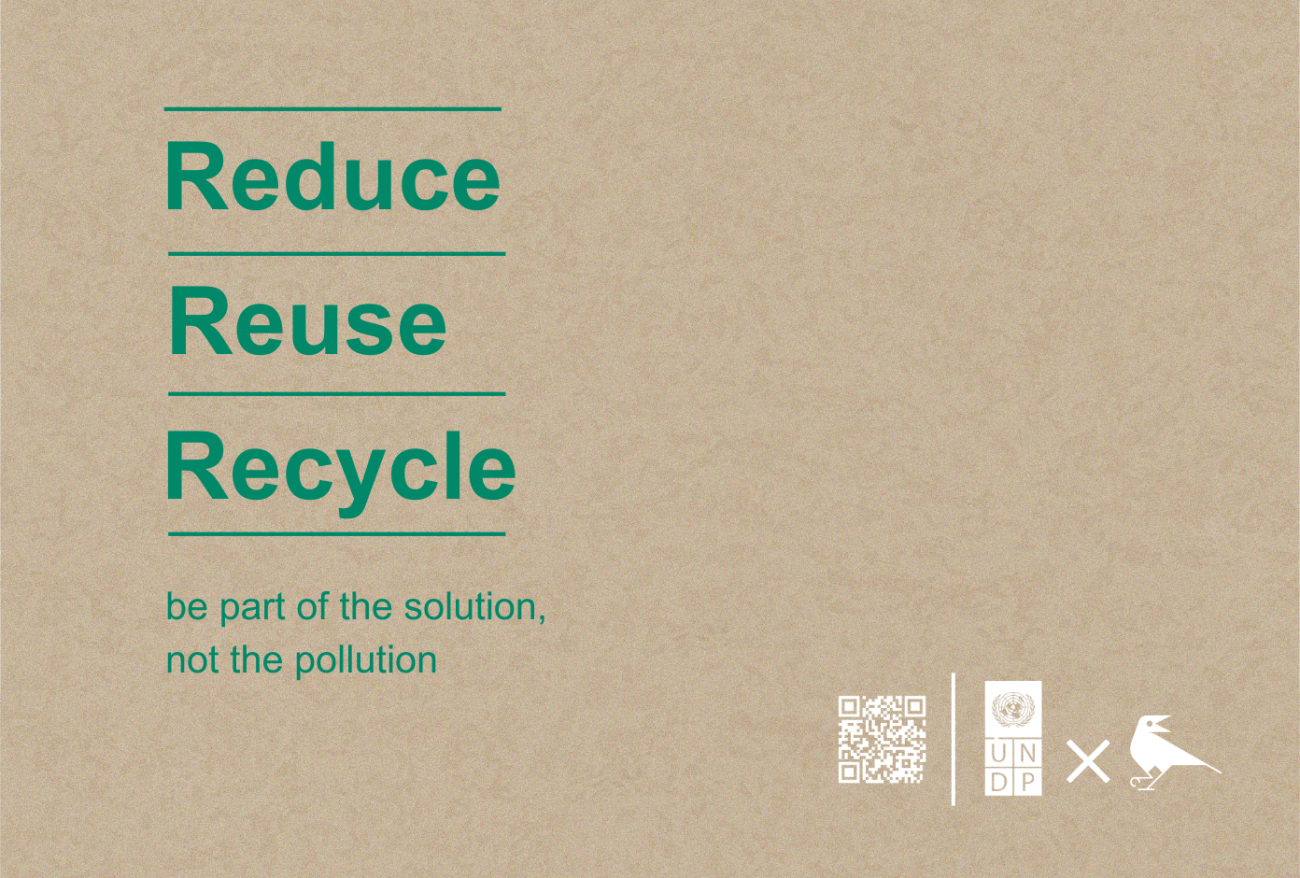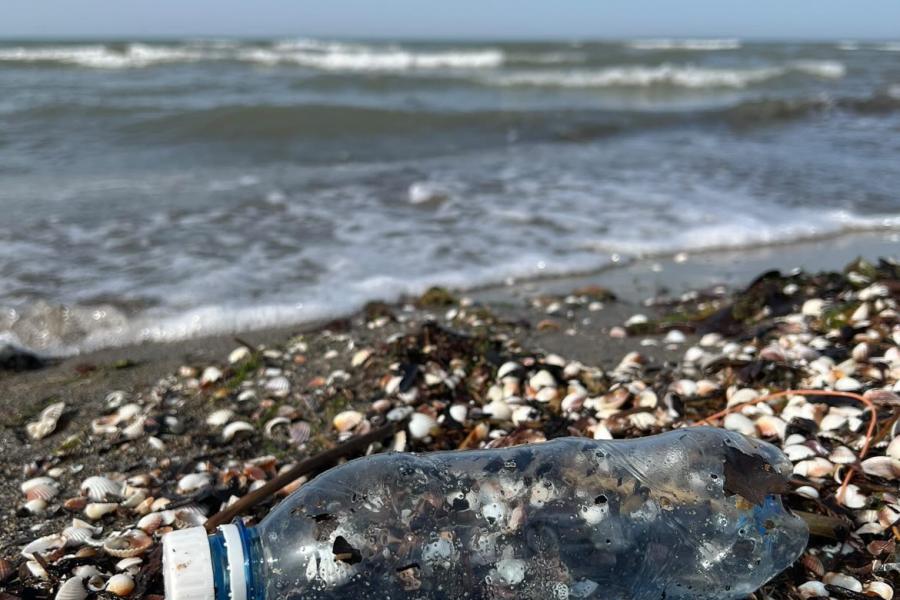Plastic Pollution

Sam coffee roasters and UNDP Iran have joined forces to raise awareness about waste, plastic pollution and responsible consumption.
We all have a role to play and can be part of the solution.
Reduce.
Reuse.
Recycle.
The Challenge:
Each minute, the equivalent to a garbage truck full of plastic is dumped into the oceans around the world. It estimated that by the year 2050 oceans will have more plastic than fish (by weight).
Disposable plastic has become a major global challenge, causing significant harm to our environment. From straws to shopping bags, our dependence on plastic products is leading to devastating consequences for rivers, oceans, wildlife, and the food chain. Population growth, rapid urbanization and consumption patterns play a critical role.
This plastic pollution crisis is alarming, with about 7 billion out of 9.2 billion tonnes of plastic produced between 1950 and 2017 ending up as waste in landfills or being discarded.
As the world population continues to grow and consumer societies become more urbanized, waste production is skyrocketing. Throughout the 20th century, waste generation increased tenfold, and this trend persists, particularly in urban areas. By 2025, it is estimated that the world's cities will produce over three times the amount of waste they did in 2009.
Unfortunately, the global recycling of plastic waste remains dismally low. Only 9% of all plastic waste ever produced has been recycled, with approximately 12% being incinerated. The rest, a staggering 79%, accumulates in landfills, dumps, or the natural environment. Recycling is crucial in reducing waste and conserving resources. For instance, recycling a tonne of paper can save 17 trees and conserve 50% of the water used in paper production.
Thankfully, there is a positive approach to address this issue. The zero waste philosophy promotes the redesign of products to prioritize reusal, eliminating the need for disposables.

The Solutions:
Resolving the plastic crisis requires comprehensive solutions, including stricter regulations, increased recycling efforts, and incentives to reduce the production of new plastic and promotion of alternatives. However, as individuals, we can also play a significant role in combating this environmental crisis by taking the following actions:
Reduce-Reuse and Recycle! Become a leader and take action by changing simple habits in your daily routine:
Embrace a Circular Lifestyle: By opting for sustainable alternatives like reusable coffee mugs, water bottles, and food packaging, we can actively combat plastic waste. Embracing a circular lifestyle reduces our reliance on single-use plastic items and encourages the reuse of products.
Bring your own reusable bag when shopping: To mitigate the environmental impact, it is crucial to reduce plastic bags while shopping. These bags can take up to 1000 years to decompose due to their non-renewable petrochemical composition. Bringing a reusable bag when shopping helps reduce the demand for plastic bags.
Opt for Plastic-Free Toiletries: Personal care products are significant contributors to microplastic pollution in our oceans. Choosing plastic-free alternatives for face wash, day cream, makeup, deodorant, shampoo, and other toiletries can prevent the entry of microplastics into the marine ecosystem.
Quit Smoking: Smoking-related waste, such as plastic filters and toxic chemicals from billions of cigarettes sold worldwide, poses a severe environmental threat. Responsible disposal of cigarette butts is essential to prevent them from polluting landfills and oceans, safeguarding marine species.
Join Cleanup Movements: Plastic waste is pervasive in various environments, including parks, rivers, and beaches. By actively participating in local and global cleanup movements, we can directly contribute to removing plastic from the environment and preventing further pollution.
By implementing these solutions and promoting a collective shift in behavior, we can all make a meaningful impact in combating the mounting toll plastic takes on our planet.






